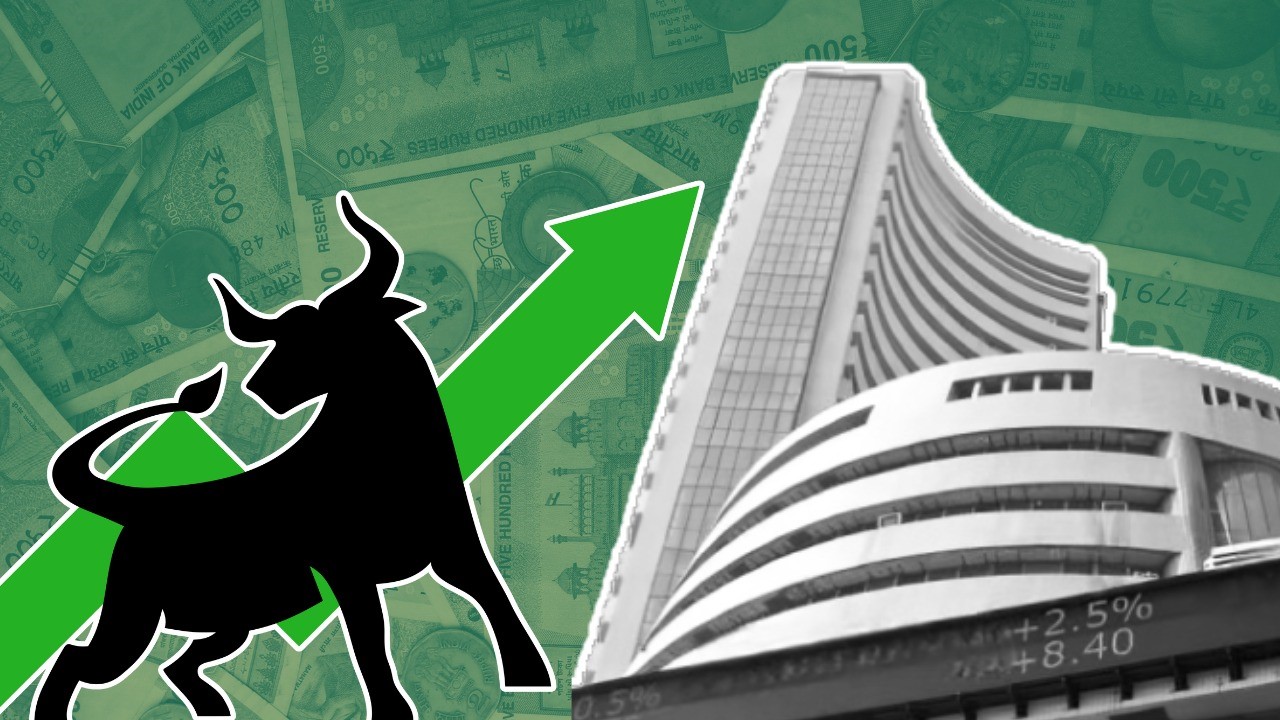
(Photo : sensex)
Indian stocks
- The Indian stock market opened positively with the Nifty trading above 23,800, driven by buying in the PSU bank, auto, financial service, and metal sectors.
- Market experts anticipate a consolidation phase in the near-term, with market reactions post-Budget and monetary policy dependent on policy initiatives.
- Foreign institutional investors sold equities worth Rs 2,454.21 crore on December 24, while domestic institutional investors bought equities worth Rs 2,819.25 crore.
- The market's future trajectory will be shaped by policy decisions, global economic trends, and domestic economic indicators, requiring a balanced and informed approach to investing.
The Indian stock market opened on a positive note on Thursday, December 26, with the Nifty trading above 23,800. The surge was primarily driven by buying in the PSU bank, auto, financial service, and metal sectors. At around 9:37 am, the Sensex was trading at 78,744.55, gaining 271.68 points or 0.35 per cent, while the Nifty was trading at 23,812.50, gaining 84.85 points or 0.36 per cent. The market trend remained positive with 1,142 stocks trading in green on the National Stock Exchange (NSE), while 795 stocks were in red.
Market experts anticipate that the market will be expecting both fiscal and monetary stimulus, which can keep the market in a consolidation phase in the near-term. The market reaction after the Budget and monetary policy will depend on the policy initiatives. The Nifty Bank was up 400.60 points or 0.78 per cent at 51,633.60. The Nifty Midcap 100 index was trading at 57,104.90 after rising 47 points or 0.08 per cent. The Nifty Smallcap 100 index was at 18,765 after rising 32.35 points or 0.17 per cent.
Market Trends and Sectoral Performance
However, Akshay Chinchalkar of Axis Securities noted that the Nifty fell for the sixth day in seven, as early session gains failed to stick. Monday's bullish harami formation wasn't activated on Tuesday as prices failed to take out the prior day's high. The first two trading days of the week have generated successive candles with long shadows showing indecision continues to prevail. Technically speaking, the 23,880-24,070 area offers resistance while support lies between 23,500 and 23,640.
On the sectoral front, selling was seen in the Realty, Pharma, FMCG, IT and Media sectors. In the Sensex pack, SBI, Kotak Mahindra Bank, ICICI Bank, Axis Bank, Maruti Suzuki, HDFC Bank, ITC, IndusInd Bank and Adani Ports were the top gainers. Asian Paints, TCS and Reliance were the top losers. Markets in the US were closed on Wednesday on account of Christmas. The S&P 500 added 1.10 per cent to 6,040 and the Nasdaq gained 1.35 per cent to close at 20,031.13 on Tuesday. In the Asian markets, except Jakarta, China, Bangkok, Seoul and Japan were trading in green.
Foreign Institutional Investors and Market Valuation
Foreign institutional investors (FIIs) sold equities worth Rs 2,454.21 crore on December 24, while domestic institutional investors bought equities worth Rs 2,819.25 crore on the same day. The Indian stock market extended its slide for the sixth consecutive session on Thursday, November 14. However, the pace of selling slowed notably as heavyweight stocks like Reliance Industries and HDFC Bank provided support, preventing a further significant decline. Some renewed interest was observed in banking and auto stocks during the session, driving frontline indices to gain 0.50% in the first half of trading. However, heavy selling pressure from the FMCG pack put strain on the indices, leading them to close flat.
Rising inflation continues to weigh on investor sentiment, with concerns that it could lead to reduced consumer spending, potentially impacting sales in the sector. On the winning side, Eicher Motors saw a rise of 6.4% after the company reported strong earnings for the September quarter, surpassing street estimates. Hero MotoCorp also ended the session with an uptick of 1.9%. Other stocks, including HDFC Life Insurance, Reliance Industries, Kotak Mahindra Bank, and SBI Life Insurance, wrapped up the session with returns of up to 1%.
The 25-basis point rate cut by the US Federal Reserve on Thursday failed to provide relief to the overheated Indian market, as investor sentiment remained subdued amid concerns over softening Q2 earnings. The US presidential election is significant for the global economy and markets. The policies and strategic decisions of the world's most powerful and largest economy are bound to have an effect on global trade.
The Indian stock market's performance has been marked by a series of highs and lows, reflecting the dynamic nature of the global economy. The market's resilience in the face of various challenges underscores the strength of India's economic fundamentals. As the market continues to evolve, investors will need to stay informed and adapt their strategies accordingly. The market's future trajectory will be shaped by a range of factors, including policy decisions, global economic trends, and domestic economic indicators. As always, a balanced and informed approach to investing will be key to navigating the complexities of the stock market.
* This is a contributed article and this content does not necessarily represent the views of btin.co.in









